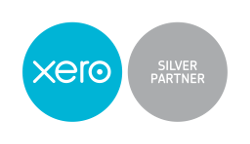Brexit is defined as the withdrawal of the United Kingdom from the European Union. The UK stopped being a member of the EU at 23.00 GMT on 31 January 2020. Brexit will affect businesses in two main areas – customs formalities (the import and export of goods or services) and invoicing businesses in other European member states known as intra-community VAT.
See what happens to customs and VAT after Brexit here…
A Guide to Customs Formalities
The government department that collects money is referred to as customs. This is applied to goods and services imported or exported from the UK with the appropriate required paperwork.
Taxes such as customs or excise duty are also collected before any goods cross the border. These are additional taxes that apply to specific goods such as alcohol and tobacco.
For businesses that only import or export to EU counties customs formalities have been of no concern due to the UK being part of this single customs union – meaning there was typically no customs paperwork to complete – or duties to pay. Goods could pass with ease through national ports without delay.
Leaving the EU and the customs union will require additional payments and the increase in administration due to initial setup and ongoing paperwork.
Importing to the UK after Brexit Facts
Preparing for a no-deal Brexit will necessitate immediate changes for businesses. Those that have previously had trade deals with companies in non-EU countries will find the transition easier.
The government has introduced significant infrastructure to make it work effectively – some businesses have already been sent UK EORI (Economic Operator Registration Identification) numbers, whilst others need to apply for them.
Commodity codes will apply to all goods that are imported – they’re 10 digits long and customs rely on this system – so you’ll need to research which code applies to the goods you wish to import, based on the same system that’s currently used in the EU.
Customs declarations and payments or tariffs will also be applicable and duties may need to be paid on a monthly basis.
Exporting from the UK after Brexit Data
As stated above you’ll need an EORI number. You need to ensure you use the correct commodity codes as the importer will need to pay tax and duty on goods exported to them. Some goods require export licences so you need to have those in place before exporting can take place.
For more help and advice, the government have published a help for businesses guide for those who need to import and export to the EU following Brexit.
VAT Facts and Figures
Value Added Tax is applied to all business to business and business to consumer sales. The amount of VAT depends on the type of business receiving the service or goods, alongside the origin and destination countries, and the type of goods being sold.
A UK business must register for VAT when turnover reaches £85,000. This is charged on behalf of the government, periodically declared, and paid to HMRC via tax returns.
Domestic VAT after Brexit rules will remain as they are. However, VAT on services to EU after Brexit may change – although will probably stay close to current regulations. Selling good to businesses outside the UK with a VAT registered organisation will have sales that are zero-rated.
Reverse charge VAT after Brexit refers to business to business sales to a VAT registered business in another EU country. This requires the seller to notify the customer of their responsibility for accounting and paying the VAT.
The government have also published guidance on VAT following no-deal Brexit. And using a trusted VAT returns service will ensure you get professional help with representation and correspondence to HMRC on your behalf. This guarantees your VAT returns will be submitted accurately and on time – and the best VAT schemes will be put in place for your individual business.



0 Comments